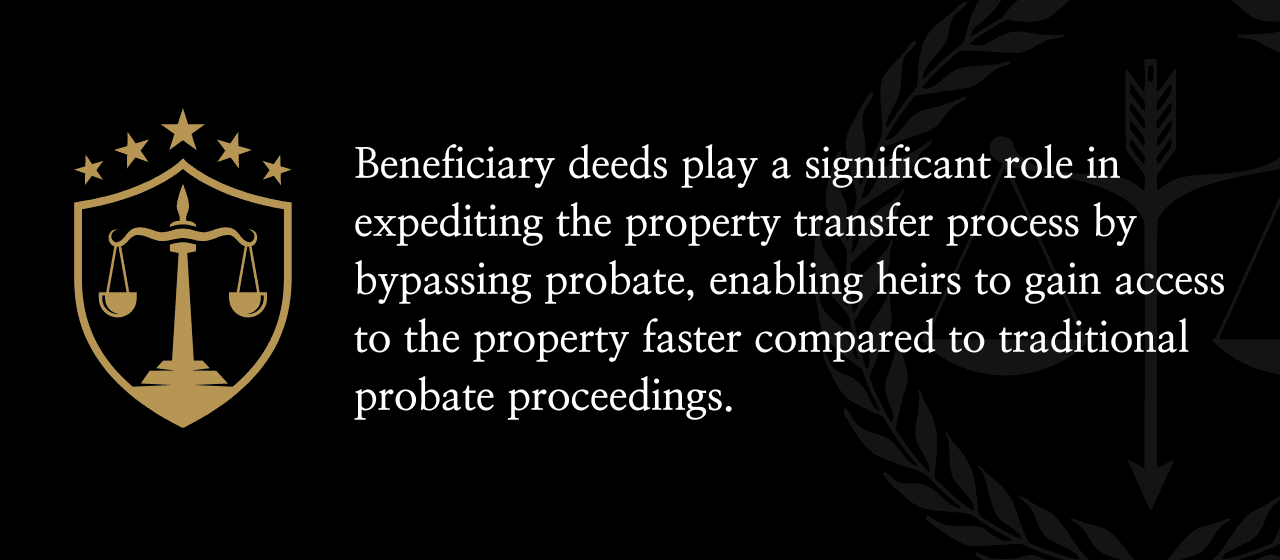Don Harmening, Attorney At Law, LLC
Beneficiary DeedS
Name a beneficiary who will inherit your property upon your passing, without your property having to go through the probate process.
Beneficiary deeds simplify the transfer of property, saving time and legal expenses.
$200
Service Procedure
Free Consultation
An initial meeting or consultation to discuss the client’s specific needs, the details of the property in question, and the intended beneficiary(ies). This step often involves evaluating the client’s overall estate plan to ensure the beneficiary deed aligns with other estate planning documents and strategies.
Preparation of the Beneficiary Deed
Drafting the beneficiary deed document, which must include precise legal descriptions of the property, the current owner’s details, and the designated beneficiary(ies). This document is tailored to comply with state laws, as the regulations governing beneficiary deeds can vary significantly from one jurisdiction to another.
Review and Revisions
Once the beneficiary deed is drafted, it’s reviewed with the client to ensure accuracy and completeness. This stage allows for any necessary revisions based on the client’s feedback or additional considerations that may arise.
Recording the Deed with Local Authorities
After the deed is executed, it must be filed or recorded with the appropriate local or county office, such as the Recorder of Deeds or County Clerk’s office, depending on the jurisdiction. This step is crucial for making the deed a part of the public record, which is necessary for the transfer of property to be recognized legally upon the owner’s death.
Further Guidance and Instructions
Providing the property owner with instructions on how to maintain the deed, as well as advice on how to amend or revoke the deed if their circumstances or intentions change. This often includes discussing how the beneficiary deed fits into the broader estate plan and what steps the beneficiary will need to take upon the owner’s death to assume ownership of the property.

Navigating Beneficiary Deeds
A beneficiary deed, often termed a transfer-on-death deed, is a legal document allowing property owners to directly pass real estate to a specified beneficiary upon their death, bypassing the traditional and often lengthy probate process.
Beneficiary deeds offer a straightforward, cost-effective approach to estate planning. They allow property owners to maintain complete control over their property during their lifetime, including the rights to use, sell, or mortgage the property as they see fit. This control extends to the ability to revoke or change the beneficiary designation at any time, providing flexibility to adapt to changing circumstances or wishes.
This strategic estate planning instrument is tailored for several key groups:
- Homeowners looking to guarantee that their residential property is seamlessly transferred to a loved one after they pass away.
- Real Estate Investors interested in circumventing the complexities and costs associated with probate for their investment properties.
- Elderly Property Owners aiming to simplify the inheritance process for their beneficiaries, making it easier for them to receive property without legal hurdles.
Opting for a beneficiary deed is most beneficial when you’re either formulating or updating your estate plan, especially if you own property you wish to directly bequeath to a specific individual or entity.
It’s an ideal choice if your primary aim is to avoid probate, ensuring a swift and cost-effective transfer of your property. Additionally, significant life changes—such as acquiring new property, undergoing a marriage or divorce, or the birth of a child—may impact your estate planning decisions, making it a prudent time to consider incorporating a beneficiary deed into your plan.
Taking Action
If you’re concerned about the future of your real estate and how it will be managed after you’re gone, establishing a beneficiary deed could be a strategic move.
For personalized advice and to explore how a beneficiary deed can fit into your estate planning strategy, contact us for a free consultation.
Taking action now can secure your legacy and ensure your property is protected and passed on according to your wishes.
